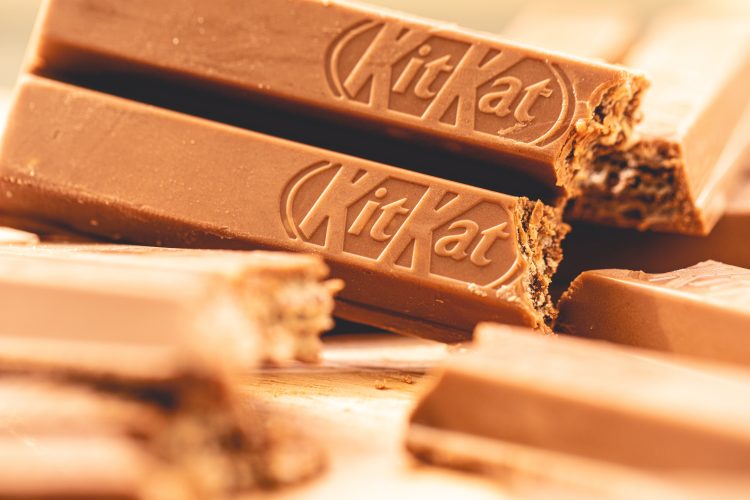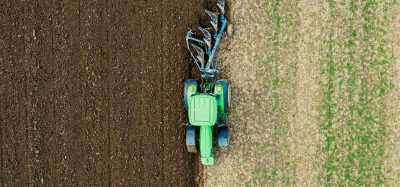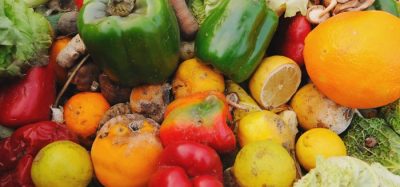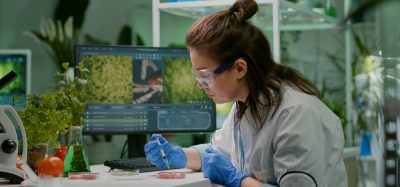Europe’s first KitKat with Nestlé Accelerator cocoa debuts
- Like
- Digg
- Del
- Tumblr
- VKontakte
- Buffer
- Love This
- Odnoklassniki
- Meneame
- Blogger
- Amazon
- Yahoo Mail
- Gmail
- AOL
- Newsvine
- HackerNews
- Evernote
- MySpace
- Mail.ru
- Viadeo
- Line
- Comments
- Yummly
- SMS
- Viber
- Telegram
- Subscribe
- Skype
- Facebook Messenger
- Kakao
- LiveJournal
- Yammer
- Edgar
- Fintel
- Mix
- Instapaper
- Copy Link
Posted: 22 January 2024 | Grace Galler | No comments yet
Nestlé introduces Europe’s first KitKat crafted from cocoa grown by farmer families from its Income Accelerator programme.


Nestlé UK and Ireland has shared that the first KitKat made with cocoa mass from beans grown by farmer families engaged in the company’s income accelerator is being launched in Europe.
The company says that this KitKat “aims to connect consumers with the farmers in Nestlé’s programme and raise awareness about the sustainability of the cocoa”.
Launched in January 2022, the Income Accelerator programme was designed to “help close the living income gap of cocoa-farming families and reduce child labour risk”. But it doesn’t stop there. Nestlé also highlights that “it strives to advance better agriculture practices and promote gender equality, empowering women as agents for positive change”.
So far, the programme has supported more than 10,000 families in Côte d’Ivoire and is expanding to Ghana this year to include a total of 30,000 families, according to the company. It even has plans for the programme to reach an estimated 160,000 cocoa-farming families in Nestlé’s global cocoa supply chain by 2030.
Turning to the product itself, Nestlé has shared that it has been collaborating with various partners and suppliers to “transform its global cocoa sourcing and achieve full traceability and physical segregation of the cocoa sourced from its income accelerator programme”. It says that this has allowed it to “track the entire journey of cocoa beans from origin to factory, while keeping them physically separated from other cocoa sources”.
A new chapter for cocoa: Nestlé’s Income Accelerator Programme
By mid-2024, the company has plans to use segregated cocoa butter for all of its KitKat chocolate in Europe, and noted it is looking into expanding to other regions in the coming years.
“KitKat has consistently embraced innovation, centered around its iconic ‘Have a break, Have a KitKat’. Today, this innovation is brought to life through the ‘Breaks for Good’ initiative that puts cocoa farmers at the centre of our product through our income accelerator programme,” said Corinne Gabler, Head of Confectionery and Ice Cream at Nestlé.
“We couldn’t think of a better brand than KitKat to represent our efforts to create meaningful impact in cocoa communities.”
The “Breaks for Good” KitKat will be available in stores across 27 European countries from January 2024. The product will be available in the UK and Ireland from May 2024. In addition, a limited-edition KitKat, with 70 percent dark chocolate that is also made with cocoa sourced from the income accelerator, has been launched in the UK market as a pilot.
“Cargill is committed to supporting Nestlé’s longer-term goals and their progress on delivering the Income Accelerator Programme,” explained Michiel van der Bom, Product Line Director Cocoa & Chocolate Europe West Africa, Cargill.
“As a partner on Nestlé’s sustainability journey, we are implementing solutions to source sustainable ingredients for Nestlé in ways that help restore the environment, support families, and increase incomes. Through our partnership, we are building a stronger, more resilient supply chain together.”
“We’re delighted to collaborate with Nestlé on their journey towards sustainable cocoa sourcing,” said Thierry Touchais, Manager, Strategic Accounts at the Rainforest Alliance. “It’s encouraging to find a company of this scale using a ‘mixed identity preserved’ model in which cocoa can be traced back to Rainforest-Alliance-certified farmers engaged in Nestlé’s income accelerator. The approach showcases the potential for positive change in the industry,” concluded van der Bom.
Related topics
Research & development, retail, Supply chain, Sustainability, Trade & Economy, World Food









